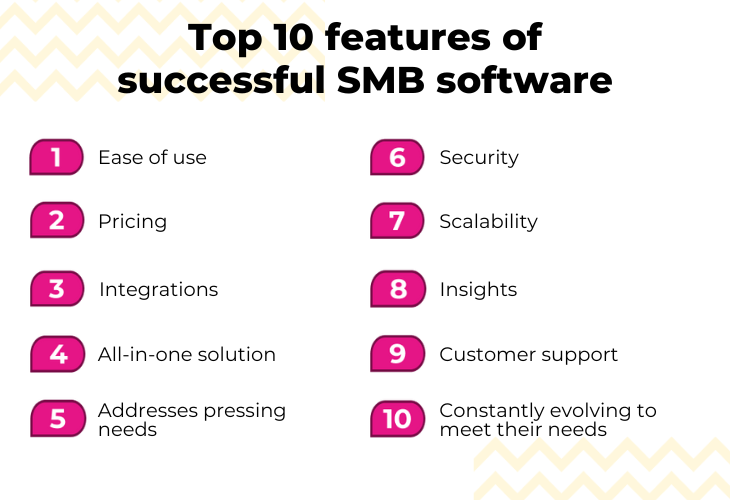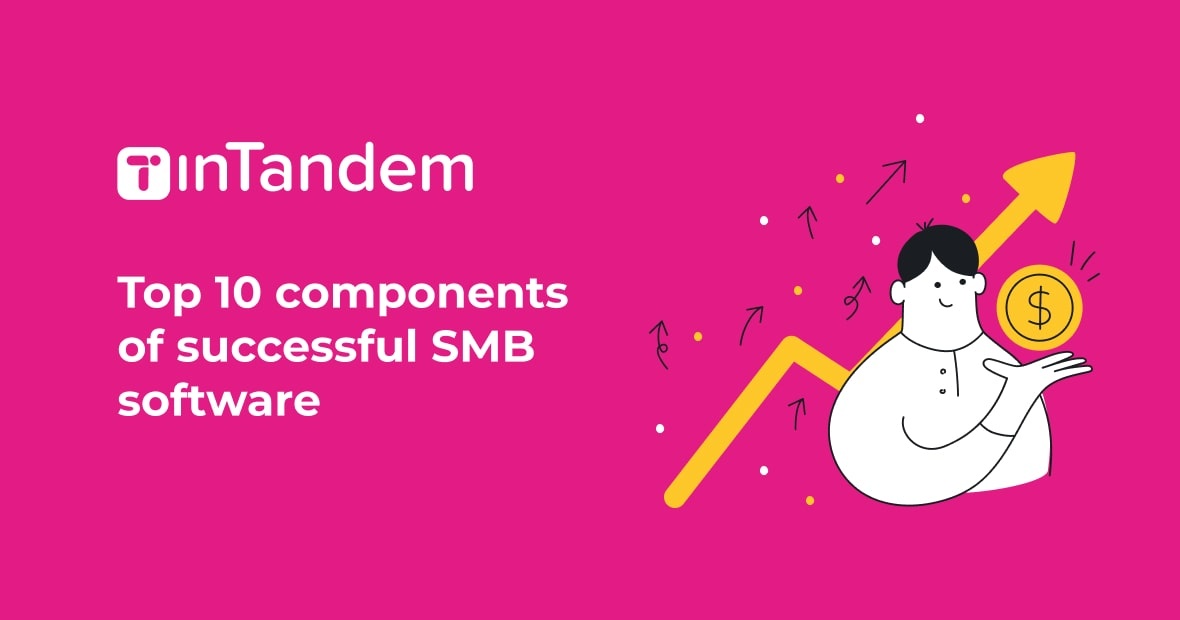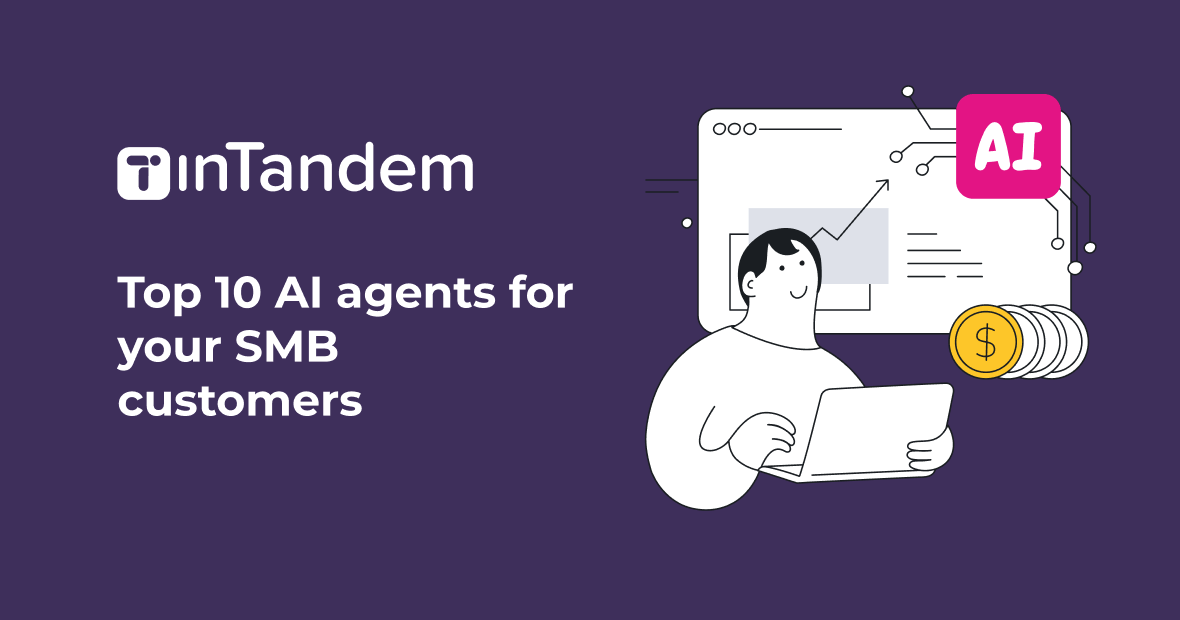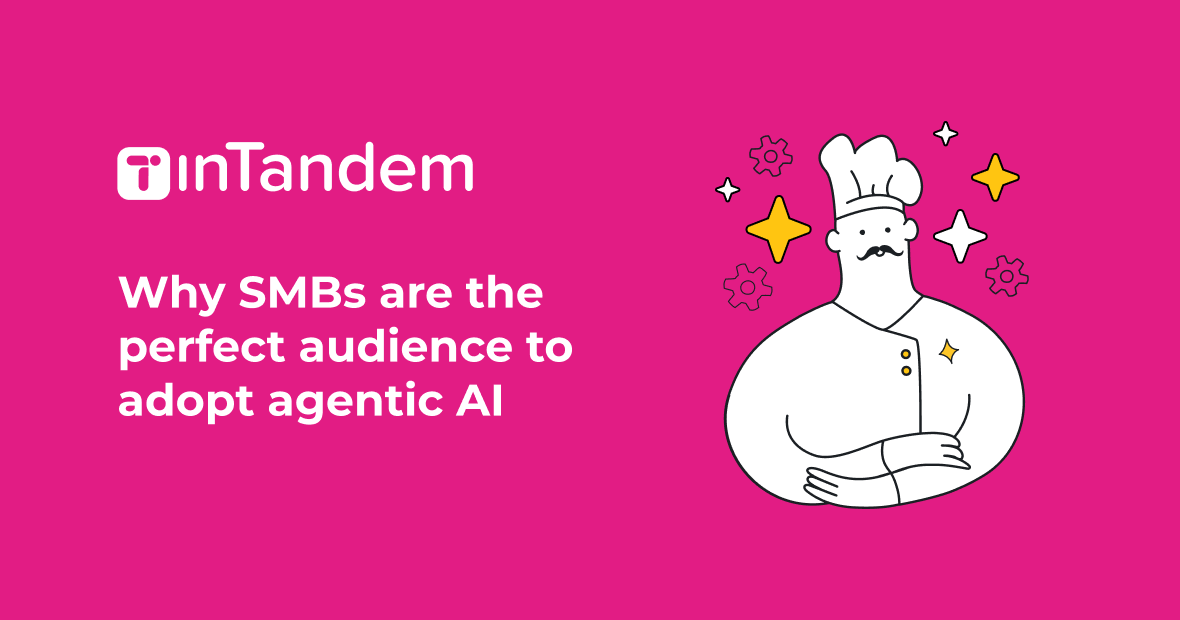Small and medium-sized businesses present a complex and dynamic market. SMBs have diverse needs, limited resources, and require agile decision-making to differentiate themselves from the competition and succeed. As a large enterprise that serves small business clients, you may find it difficult to effectively meet their evolving needs.
Perhaps you’ve considered partnering with a white-label solution to expand your offering to SMBs, but with so many options available, knowing what features to look for and making a choice can be daunting.
With over 14 years of industry experience in developing and refining solutions for small businesses, vcita is intimately familiar with the small business market. We conducted a survey of 500 small business owners to learn how they use digital tools and find out what their needs are from their digital companions. In this blog post, we’ll outline the top 10 features required for SMB software to be successful.
What makes SMB software successful?

Ease of use
Small and medium-sized businesses typically lack the resources for extensive software training and complex onboarding processes. The software solutions SMBs use should have a user-friendly interface with intuitive navigation. This will encourage higher user adoption and ensure maximum utilization of the software’s capabilities, while minimizing the need for additional training or support.
Pricing
Affordability is a significant consideration for small business owners when choosing software solutions, because they operate on a much tighter budget than large enterprises. We’ve found that software solutions priced between $1200 to $6000 per year strike the right balance between functionality and cost-effectiveness for most SMBs. This price range lets small businesses access the essential features they need without overspending on unnecessary functionalities found in higher-priced software solutions.
Tiered pricing structures can give small businesses the flexibility to choose a plan that aligns with their budget and specific requirements. A choice of basic, standard, or premium options accommodates the varying needs of SMBs, ensuring that any business can access the features they need at the right price point.
Hidden fees and unexpected costs can deter SMBs from adopting a software solution. Clear and upfront pricing information and transparent billing practices are a must for building trust and fostering good long-term relationships with your small business clients.
Integrations
Small businesses need software solutions that integrate seamlessly with the tools and platforms they already use, such as their accounting and financial management platforms, CRM software, and project management tools. This ensures that the SMB software solution can complement and enhance their existing workflows without causing disruptions.
All-in-one solution
Small businesses continually seek to streamline operations and minimize complexity. For this, they need an all-in-one software solution that merges all of the features they need, such as scheduling, billing, invoicing, accounting, and marketing.
An all-in-one solution helps SMBs cut costs while offering convenience. Instead of bouncing back and forth between multiple platforms and tools, consolidating their operations into one unified platform enhances SMBs’ efficiency and simplifies management. It allows them to manage all aspects of their business in a convenient, hassle-free way.
Addresses pressing needs
For small businesses to succeed, they require efficiency and agility. Any software solution they use will have to meet their most urgent needs in a streamlined manner.
Financial management
One of SMBs’ most pressing concerns is financial management. A software platform should be able to handle their billing, invoicing, payments, and accounting functions impeccably. This ensures SMBs can maintain accurate financial records, manage cash flow, and make timely payments, helping them grow and sustain their business.
Marketing
Small businesses rely on effective marketing strategies to attract and retain customers. Email and SMS marketing are crucial for engaging with their audience and driving sales. A software solution should enable SMBs to create targeted marketing campaigns, automate their outreach efforts, and analyze campaign performance. This will enable them to nurture customer relationships and promote growth.
Appointment scheduling
Booking appointments is an important part of small business operations, particularly for service-based businesses such as clinics, salons, and consulting firms. Today’s small business owners have come to expect automation at every stage. A software solution that includes appointment scheduling optimizes the booking process for small businesses and their clients. Online booking, calendar synchronization, and automated reminders reduce the risk of scheduling conflicts and enhance efficiency for everyone.
Security
Data security is an ongoing concern for small businesses in our era of frequent cyberattacks. SMBs may not have the tools to safeguard themselves and their clients from potential breaches and unauthorized access that can put sensitive data at risk. A successful software solution employs robust security measures, such as access controls, encryption, and regular security updates. In this way, SMBs can protect their assets, mitigate risks, and instill trust among their clients.
Scalability
As small businesses grow, they require a software solution that is capable of scaling with them to accommodate increased demand without disrupting operations. Scalable software ensures that SMBs can handle an increase in customer interactions, transactions, and data processing. It allows them to maintain consistent performance during peak periods, without slowdowns or system failures that could hinder operations or impact customer satisfaction. By providing your small business clients with scalable technology infrastructure, you’re helping them future-proof their operations so they can remain agile along their business journey.
Insights
Small businesses face unique challenges in leveraging data-driven insights because they don’t have access to the broad datasets that larger enterprises possess. The right software solutions can help SMBs bridge this gap by providing tailored insights based on real data from their business operations.
A successful software solution can give small businesses valuable insights into customer behavior, market trends, and competitor analysis, giving them an accurate picture of their market landscape. Software can go even further by offering actionable recommendations that empower small businesses to make informed business decisions, leading to better outcomes.
Customer support
A software solution with reliable customer support is essential for small businesses. Responsive and knowledgeable customer assistance allows small businesses to overcome technical challenges and make the most of their software investments. Good customer support should include the options of reaching out via email, live chat, and phone, so any concerns can be handled in a timely manner.
Customer support also entails proactive guidance and training. Small businesses may need hands-on training, resources, and tutorials to leverage software solutions effectively. Intuitive, comprehensive support can spell the difference between SMBs’ success or failure when implementing new software solutions.
Constantly evolving to meet their needs
The needs of small businesses are constantly changing, driven by market trends, technological advancements, and regulatory changes. A successful software solution evolves with SMBs, updating its features and functionalities to stay relevant and meet their changing needs.
In today’s landscape, this means incorporating innovations such as AI, machine learning, and automation, all of which can help streamline processes and unlock growth opportunities for SMBs. Software solutions that integrate these technologies empower SMBs to stay ahead of the competition and thrive in the ever-changing business environment.
Paving the path for SMB software success
The success of software solutions for small and medium-sized businesses requires a multifaceted approach that combines ease of use, affordability, integrations, comprehensiveness, security, scalability, insights, customer support, and ongoing innovation. Prioritizing these features enables large enterprises that serve small businesses to offer SMBs software solutions that meet their needs, while enhancing their ability to thrive in their market. By understanding and addressing the unique requirements of small businesses, large enterprises can offer software solutions that drive their mutual growth and bolster their long-term partnerships.



























